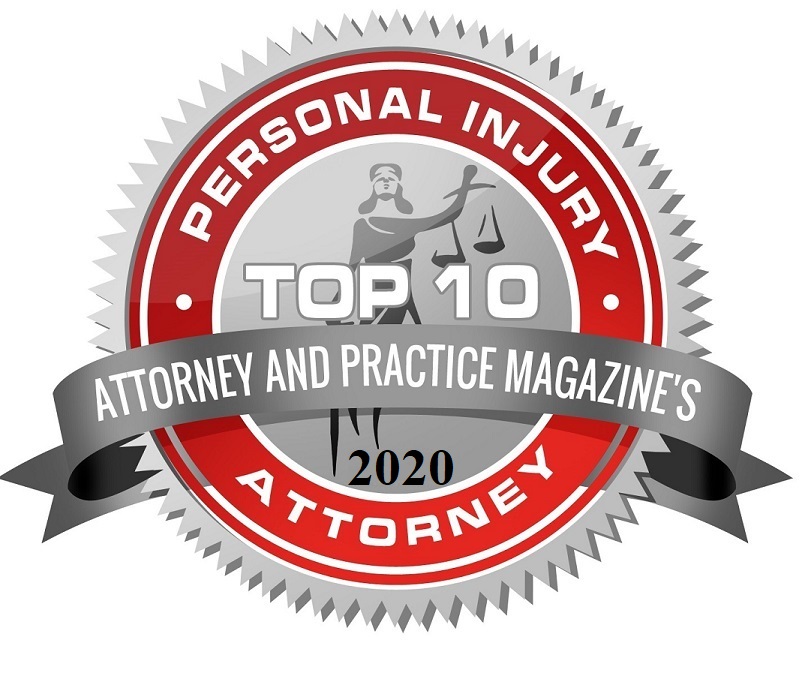When you are involved in a rideshare accident in Florida, the circumstances can feel overwhelming. You may have injuries to deal with, questions about what happened, and the added confusion of whether or not you can file a claim for compensation. One question that comes up often in these situations is: Can I still claim compensation if I wasn’t wearing a seatbelt during the accident? Florida’s rideshare laws, personal injury laws, and rules about seatbelt use may affect your ability to recover damages. Let’s explore what you need to know if you find yourself in this situation. At, Serrano Law , we are here to guide you through the legal process and help you navigate the complexities of your case.






Seatbelt Laws in Florida: What You Should Know
Seatbelt laws in Florida are clear. All front-seat passengers must wear a seatbelt, and anyone under the age of 18 is required to wear a seatbelt regardless of where they are sitting in the vehicle. For adults riding in the back seat, wearing a seatbelt is not legally required. However, that does not mean you shouldn’t wear one. Not wearing a seatbelt can increase the risk of severe injury in an accident. This fact plays a role in how insurance companies and courts may view your claim for compensation, even if you were not legally obligated to wear a seatbelt.
In the event of a rideshare accident, the question of seatbelt use can become a key point in any claim you make. Florida operates under a legal concept called “comparative negligence.” This means that more than one party can be found at fault for an accident. So if you were not wearing a seatbelt, you might still be entitled to compensation, but the amount you receive could be reduced.
Understanding Comparative Negligence in Florida
Comparative negligence is an important concept when it comes to personal injury claims in Florida. Under this law, the court assigns a percentage of fault to each party involved in the accident. This means that if you were found to be partially at fault for your injuries because you weren’t wearing a seatbelt, your compensation could be reduced by the percentage of fault assigned to you.
For example, if you were awarded $100,000 in damages, but the court determined that you were 20 percent responsible for your injuries due to not wearing a seatbelt, your award would be reduced by 20 percent. In this case, you would receive $80,000 instead of the full amount.
It’s important to understand that comparative negligence does not mean you cannot recover compensation. Even if you weren’t wearing a seatbelt, you may still be entitled to financial compensation for your injuries, but the total amount you receive may be impacted. This is why having a guide to help you navigate this legal process is essential.
How Seatbelt Use Can Affect Your Injury Claim
Even though Florida law doesn’t require backseat passengers over the age of 18 to wear a seatbelt, insurance companies may still try to use the fact that you weren’t wearing one as a reason to minimize your claim. They may argue that your injuries were more severe because you weren’t properly restrained and that you bear some responsibility for the extent of those injuries.
This does not mean you are automatically at fault. In fact, Florida law prevents insurance companies from using your failure to wear a seatbelt as an absolute defense. This means they cannot deny your claim solely because you weren’t wearing a seatbelt. However, it could play a role in determining how much compensation you receive. Working with someone familiar with these laws can help ensure that your rights are protected, and that you aren’t unfairly penalized for not wearing a seatbelt.
The Role of Rideshare Companies in Accidents
When a rideshare accident occurs, determining who is responsible can be complicated. Rideshare drivers, like those who drive for Uber or Lyft, are considered independent contractors rather than employees. This distinction can make it more challenging to determine who is liable for your injuries and to what extent.
Rideshare companies generally carry insurance policies that cover their drivers while they are actively transporting passengers. If the driver was at fault for the accident, you may be able to file a claim against this insurance policy. However, if another vehicle was involved and that driver was at fault, you may need to pursue compensation from the at-fault driver’s insurance company.
Regardless of who is found responsible, if you weren’t wearing a seatbelt, the insurance company may still argue that you contributed to your injuries. This is why having someone by your side who knows how to deal with insurance companies and who can fight for fair compensation is crucial. A strong legal advocate will understand how to present your case in the best possible light, ensuring that you aren’t unfairly blamed for the accident or your injuries.
Proving Fault in a Florida Rideshare Accident
Proving fault in a rideshare accident often requires a thorough investigation. This could include gathering evidence such as the rideshare driver’s driving record, the condition of the vehicle, eyewitness statements, and possibly even security camera footage from nearby locations. In cases where you weren’t wearing a seatbelt, showing that the accident would have caused significant injuries even if you had been wearing one may also be necessary.
This process can be complex, but it is critical for ensuring that you receive the compensation you deserve. A skilled legal guide will know how to gather the necessary evidence, build a strong case, and negotiate with the insurance companies on your behalf. By doing so, they can help minimize any attempts to reduce your compensation due to the seatbelt issue.
Choosing The Right Personal Injury Attorney Personal Injury Settlement TimelineRelated Videos
What You Can Be Compensated For After a Rideshare Accident
Even if you weren’t wearing a seatbelt, you may still be eligible for various forms of compensation following a rideshare accident. Compensation is typically awarded for things like medical bills, lost wages, pain and suffering, and the cost of any ongoing care you may need as a result of your injuries.
In Florida, rideshare companies are required to carry liability insurance, which is designed to cover passengers who are injured in accidents. If you were injured in a rideshare accident, this insurance may help cover your medical expenses and other losses. However, as previously mentioned, the amount of compensation you receive could be reduced if you weren’t wearing a seatbelt at the time of the accident.
It’s important to act quickly after an accident, as there are time limits on when you can file a claim. Florida’s statute of limitations for personal injury cases is typically four years from the date of the accident, but certain factors could affect this timeline. Speaking with a legal professional soon after the accident can help ensure that your claim is filed within the appropriate timeframe.
Case Results
Why You Should Seek Legal Help After a Rideshare Accident
Navigating the legal landscape after a rideshare accident can be overwhelming, especially if you weren’t wearing a seatbelt. From dealing with insurance companies to understanding Florida’s comparative negligence laws, there are many factors that could impact your ability to recover compensation. Having a knowledgeable and dedicated legal team on your side can make all the difference in ensuring that your rights are protected and that you receive the compensation you deserve.
A legal guide will be able to assess the details of your case, explain your options, and help you make informed decisions every step of the way. They will also have experience dealing with insurance companies that may try to minimize your claim, and they will know how to fight back against unfair tactics.
If you’ve been injured in a rideshare accident in Florida, don’t wait to get the help you need. Even if you weren’t wearing a seatbelt, you still have the right to seek compensation for your injuries. Contact Serrano Law today to discuss your case and take the first step toward getting the compensation you deserve.



